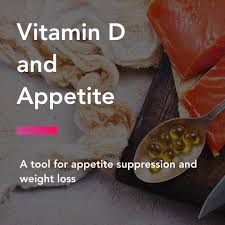
The Power of Vitamins in Suppressing Appetite
Struggling to control your appetite and manage your weight? While a balanced diet and regular exercise are key components of a healthy lifestyle, certain vitamins have been found to play a role in suppressing appetite and supporting weight management.
Vitamin B Complex
Vitamin B complex, which includes B1 (thiamine), B2 (riboflavin), B3 (niacin), B5 (pantothenic acid), B6 (pyridoxine), B7 (biotin), B9 (folic acid), and B12 (cobalamin), is essential for overall health and wellbeing. Some studies suggest that certain B vitamins, particularly B6 and B12, may help regulate appetite by influencing neurotransmitters that control hunger.
Vitamin D
Known as the “sunshine vitamin,” vitamin D is crucial for bone health and immune function. Recent research has also linked vitamin D deficiency to increased appetite and weight gain. Adequate levels of vitamin D may help suppress appetite and support healthy weight management.
Fiber Supplements
While not a vitamin, fiber is an essential nutrient that plays a significant role in promoting satiety and reducing hunger. Fiber supplements such as psyllium husk or glucomannan can help you feel full for longer periods, leading to reduced calorie intake and potential weight loss.
Consult Your Healthcare Provider
Before adding any new vitamins or supplements to your routine, it’s important to consult with your healthcare provider. They can provide personalized advice based on your individual health needs and goals. While vitamins can be beneficial in supporting appetite control, they should complement a balanced diet and healthy lifestyle practices.
By incorporating these appetite-suppressing vitamins into your daily regimen alongside nutritious meals and regular physical activity, you may find it easier to manage cravings, support weight loss efforts, and improve overall wellness.
5 Essential Vitamins to Help Curb Your Appetite and Manage Cravings
- Include vitamin B complex in your diet to help regulate metabolism and reduce cravings.
- Vitamin D deficiency has been linked to increased hunger, so make sure to get enough sunlight or consider supplements.
- Vitamin C can help control appetite by stabilizing blood sugar levels. Include citrus fruits and leafy greens in your meals.
- Omega-3 fatty acids, commonly found in fish oil supplements, can help reduce hunger and promote a feeling of fullness.
- Consider taking a multivitamin to ensure you’re getting all the essential nutrients that may help suppress appetite.
Include vitamin B complex in your diet to help regulate metabolism and reduce cravings.
Including vitamin B complex in your diet can be a valuable strategy to regulate metabolism and curb cravings. The various B vitamins, such as B6 and B12, play essential roles in energy production and neurotransmitter function, which can influence feelings of hunger and satiety. By ensuring an adequate intake of vitamin B complex, you may support a healthy metabolism and potentially reduce the intensity of cravings, making it easier to maintain a balanced approach to eating and weight management.
Vitamin D deficiency has been linked to increased hunger, so make sure to get enough sunlight or consider supplements.
Vitamin D deficiency has been associated with heightened hunger levels, emphasizing the importance of maintaining adequate levels of this essential vitamin. To help regulate appetite and potentially support weight management, it’s crucial to ensure you receive sufficient sunlight exposure or consider incorporating vitamin D supplements into your daily routine. By addressing your vitamin D needs, you may be able to better control cravings and promote a healthier relationship with food.
Vitamin C can help control appetite by stabilizing blood sugar levels. Include citrus fruits and leafy greens in your meals.
Including foods rich in Vitamin C, such as citrus fruits and leafy greens, in your meals can be a smart strategy to help control appetite. Vitamin C plays a crucial role in stabilizing blood sugar levels, which can contribute to reducing cravings and overeating. By incorporating citrus fruits like oranges and grapefruits, as well as leafy greens such as spinach and kale into your diet, you not only boost your Vitamin C intake but also support overall health and weight management goals. Embracing these nutrient-rich foods can be a tasty and effective way to curb hunger and promote a balanced approach to eating.
Omega-3 fatty acids, commonly found in fish oil supplements, can help reduce hunger and promote a feeling of fullness.
Omega-3 fatty acids, commonly found in fish oil supplements, have been shown to be effective in reducing hunger and promoting a sense of fullness. Incorporating omega-3s into your diet through supplements or foods like salmon and walnuts may help curb cravings and support weight management goals. Research suggests that these essential fatty acids not only benefit overall health but also play a role in appetite regulation, making them a valuable addition to a balanced diet focused on controlling food intake.
Consider taking a multivitamin to ensure you’re getting all the essential nutrients that may help suppress appetite.
Consider incorporating a multivitamin into your daily routine to ensure you’re receiving a comprehensive range of essential nutrients that have the potential to help suppress appetite. A multivitamin can serve as a convenient way to fill any nutritional gaps in your diet and support overall health and wellbeing. By providing your body with the necessary vitamins and minerals, you may find it easier to regulate hunger cues and maintain a balanced approach to eating. Remember to choose a high-quality multivitamin that aligns with your specific dietary needs and consult with a healthcare professional for personalized guidance on supplementation.
